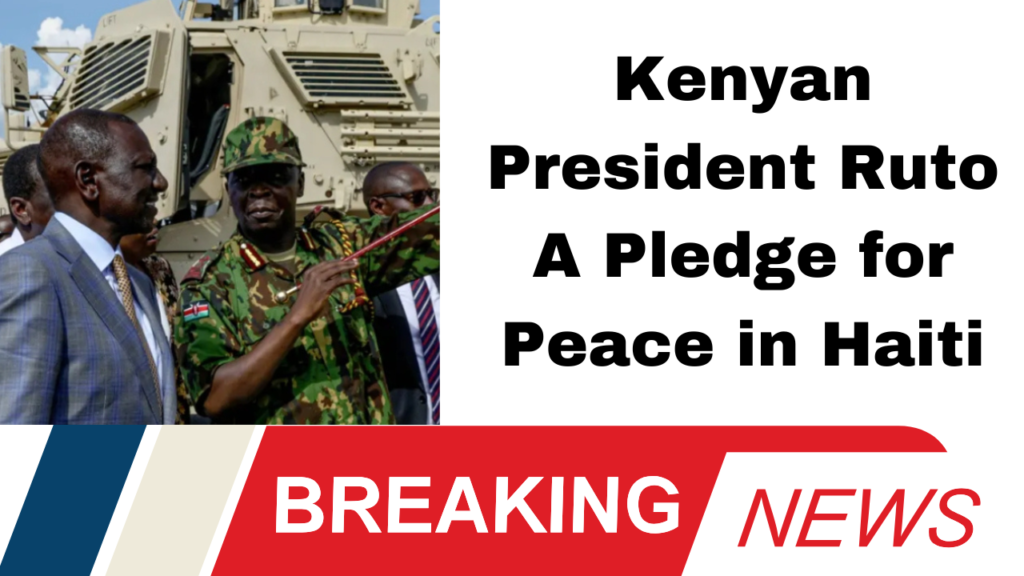President William Ruto of Kenya recently embarked on a significant visit to Port-au-Prince, Haiti, where his country’s peacekeeping forces are facing daunting challenges. With nearly 400 Kenyan police officers deployed, the mission comes nearly seven months after escalating gang violence wreaked havoc, claiming thousands of lives and destabilizing the government.
During his visit, President Ruto announced plans to send an additional 600 officers to Haiti in the coming months 300 in October and another 300 in November. His trip coincides with his upcoming participation in the U.N. General Assembly in New York, where he aims to rally international support for restoring order in Haiti.
Ruto’s visit highlights the stark reality of life in Haiti, where gang violence remains rampant. The recent kidnapping of two Filipino sailors halted maritime cargo shipments, and the streets of downtown Port-au-Prince are largely deserted. Even Haiti’s prime minister is unable to access his office due to gang control in the area.
After meetings with Haitian and Kenyan officials, Ruto addressed a gathering of Kenyan officers, praising their courage and leadership despite the dire circumstances. “This mission initially was met with skepticism,” he acknowledged, emphasizing the need for more resources to bolster their efforts.
At a press conference, Ruto admitted that the mission has been hindered by a lack of equipment and resources. This sentiment is echoed by experts who stress that the Kenyan officers are not adequately equipped for the task at hand. William O’Neill, a U.N. human rights expert, labeled the humanitarian crisis in Haiti as “an enduring agony,” noting that gangs have expanded their influence beyond the capital.
Residents of Port-au-Prince report that the Kenyan officers, who arrived in late June, are seldom seen, raising concerns about the effectiveness of the mission. O’Neill stated, “His police are doing all they can with what they have, but what they have is not adequate.” He called for essential equipment such as helicopters, night vision gear, and better-armed vehicles.
The United Nations authorized the Multinational Security Support Mission (M.S.S.) last October amid escalating violence, with the U.S. and Canada as primary financial backers. However, international support has fallen short, disappointing Haitian officials. As gang coalitions have attacked vital government facilities, the security situation has only deteriorated, leading to the deaths of over 3,000 individuals in the first five months of the year.
Experts stress the importance of effective coordination between the international force and the Haitian National Police. Romain Le Cour from the Global Initiative stated, “It is urgent for the M.S.S. to match rhetoric with reality.” Without strategic, operational, and financial clarity, the people of Port-au-Prince will continue to see little improvement.
The State Department plans to propose an extension of the mission’s mandate, signaling a continued commitment to Haiti’s stabilization.
Ruto’s visit to Haiti comes at a time when he faces domestic challenges, including protests over a controversial airport renovation deal. When asked about his comments regarding notorious gang leader Jimmy “Barbecue” Chérizier, Ruto responded with a smile, saying he encouraged his officers to capture him.
As President Ruto seeks to fortify Kenya’s role in Haiti’s recovery, the success of this mission hinges on adequate resources, international cooperation, and a genuine commitment to restoring peace in a nation that has suffered for far too long.
